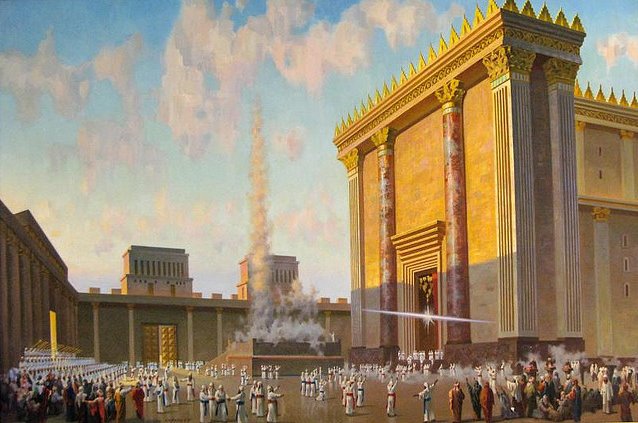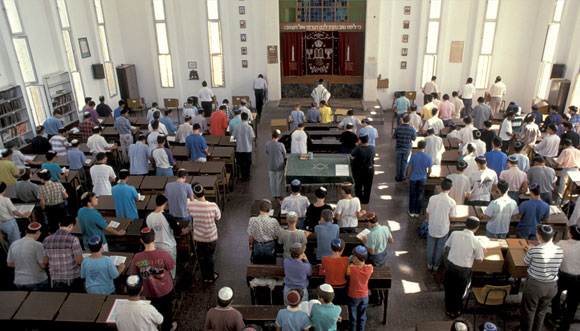January 11, 2022|ט' שבט ה' אלפים תשפ"ב Bo 5782 - Are You Going or Are You Coming?
Print ArticleIf you were sending someone on a mission, how would you send them off? I would say “LECH”, GO on your way! And Hashem does, indeed, tell Moshe numerous times, “LECH El Pharaoh” “Go to Pharaoh”. Yet, at the beginning of the conversation this week, Hashem changes His language, and instead tells Moshe: “BO El Pharaoh” ‘GO to Pharaoh’. And the question, of course, is what is the difference between these two commands?
Rabbi Joseph B. Soloveitchik argues that the difference between GO and COME is reflective of Moshe’s relationship with Hashem. Because, after all, Moshe is Hashem’s shliach, His emissary. And in halacha there are two types of shlichim:
There is the formal type of shliach. A shliach who can perform mitzvos and effect monetary transactions, all on behalf of the sender, without the sender being present at all. Once I have made you my shliach, you are on your own! And this is true to the extent that the shliach can even, at times, make his own decisions about how to fulfill the mission. For example, when Avraham sends Eliezer to find a wife for Yitzchak, he gives him guidelines. However, in the end, it is Eliezer who makes the choice and Eliezer who makes the transaction without Avraham having any knowledge of the details.
On the one hand, this first type of messenger is given remarkable latitude by the sender. At the same time, though, the messenger is incredibly removed from the sender. He has been sent on a mission and told to simply make sure it is complete. In fact, even if the sender would never receive information about the completion of the transaction, it is nevertheless considered complete. This is a powerful form of shlichus, but an impersonal one.
However, there is second kind of shliach as well. A shliach who unites with the sender, forming a bond in which they work together. A shlichus where one person can complete a task on behalf of the other, but the two people are united. They share the same goals and the same destiny. For example, when I bring a korban to the Beis HaMikdash, the Kohein becomes my shliach to offer the korban. However, I can’t simply send the korban via FedEx and allow the Kohein to do his thing. The halacha is that I must bring the Korban to Yerushalayim myself, no matter how far away I live, so I can stand there when the Kohein offers the korban. And this is so because this is a different type of shlichus, a shlichus which is personal, a shlichus which is experiential. One in which, yes, I need the other person to help me perform the act, but one in which I stay right there with my messenger because it is a partnership.
This is true as well when it comes to the Kohein Gadol on Yom Kippur. We do not simply hand over the reins and everyone else goes home. The Mishna in Yoma (6:2) describes how on Yom Kippur the courtyard of the Beis HaMikdash was filled with Kohanim, Leviim, and Yisraelim, all kinds of people who stood to watch the Avoda. In fact, chazal tell us that all of Yerushalayim stayed awake all night the night of Yom Kippur because the Kohein Gadol did so as well.
Even the Chazzan, the “Shliach Tzibbur” when we daven, though he serves as our messenger, he does so with us right there alongside him. We don’t make someone the shliach tzibbur and then send him to daven alone in a different room. He is only the shliach of the community, serving as our spokesperson, as long as he is connected with the community itself, standing amongst us. And that is why the halacha states that a Shliach Tzibbur doesn’t stand up by the Aron separate from the people but rather in the middle of the room, surrounded by the tzibbur.
And these two types of messengers are symbolized by the two different words used by Hashem to Moshe. Yes, in a certain sense, and with certain elements of his role, Moshe is a simple shliach, the first type, working on behalf of Hashem. However, fundamentally, Moshe was a shliach in the second sense, the personal, experiential, shliach who is really a partner with his sender. A Navi is a messenger of Hashem, speaking the word of G-d. He is like the shliach tzibbur who can only be successful if the tzibbur is united with him.
So, what language, then, does Hashem use with the regard to Moshe? Not only LECH, but also BO. Not go there, and leave Me here. But BO, COME ALONG WITH ME! Yes, I know I have sent you on a mission, says Hashem, but I’M NOT LEAVING YOU. I will be JOINING YOU. So, BO El Pharaoh, COME WITH ME, as we go together, UNITED in our mission to chart a path forward for the history and destiny of the Jewish people!
As the Kotzker Rebbe writes, “why does Hashem use the language of ‘Bo! Come with Me!”? “Ki Min HKBH Ein Holchim!” A Jew never, never walks away from Hashem. So, Hashem uses the word, “Bo, Bo ITI”, come with me. “Hineni Itcha b’chol asher telech”, I will be with you wherever you go!
What an important lesson for us all in our Avodas Hashem: Are we going or are we coming? Sometimes we feel like our work on behalf of Hashem in this world is work done by a servant who has simply been sent away on a mission. The goal, though, is to remind ourselves that even as we make our way through life, trying our best to fulfill the shlichus, the job that Hashem has sent us here to do, we haven’t been told LECH, but rather BO. Hashem has sent us on a mission, but He never sent us away. “Ki Min HKBH Ein Holchim!” A Jew never never walks away from Hashem. We can’t. He won’t let us.
Hashem doesn’t tell us LECH, GO. He is always calling out to us “BO”, come WITH ME. He promises us that “wherever your journey to fulfill your mission takes you, I will be there too.”




